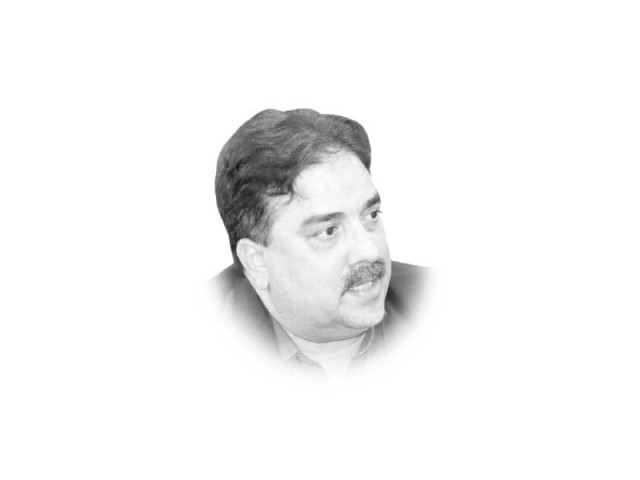Let the labourers have the last laugh
In a country where 50% live below the poverty line, Pakistan's wealth inequality deepens, leaving laborers hopeful.

I often used to notice a group of labourers as they strolled down to their site camp after a day of hard work, laughing and cheering all their way. That scene, witnessed for a number of continuous days as I too used to take a late evening walk in the walled-serene comforts of DHA Islamabad, surprised me. These men of lesser god are employed for a high-rise project on the outskirts of the federal capital. Apparently, they are masons, wielders, carpenters, plumbers and men of the small trades who do not have anything to hold back for their lives except the daily wages that come their way. These souls are devoid of insurance, healthcare, housing and even education for their wards.
Yet, I thought how happy and peaceful they are to themselves, and are little bothered on how and in what state of affairs they are! They were shabbily dressed, tired and hardly a couple of them possessed a smartphone, which I noticed they used to share for making a call perhaps to their desolate families. I am sure their meagre daily wages are hardly enough to get them two square meals, after they have sent nominal money back home. Yet, they were content and had the courage to cheer for each other and go to bed with the hope of rising the next day with a new resolve of hope in their unassured future.
This state of affairs is the majority mosaic of Pakistan. Poverty sits pretty cool and is thriving. More than 50 per cent of the 245 million population live below the poverty line, and struggle to make their ends meet at an income less than $3 a day. Ten million more poor people have been added to this segment over the last three years.
The reason is the economy that is held hostage by the 'haves', and the 'have-nots' are at their mercy. The structure of growth, supply chain, demand and supply is absolutely under elite capture, and wealth inequalities persist on a deep-rooted income strata. Lack of opportunities for all and nepotism at the helm of affairs have bred parochialism, pushing the society into the abyss of marginalisation, sense of otherness and perpetual crime and terrorism.
Some of the statistics are worth-observing, if any serious endeavour is desired to make an auto-correction. According to the World Inequality Database, the situation is worse for Pakistan where the top 1% own 26.1% of total wealth, the top 10% own 59.9% and the bottom 50% of people own only 4.6% of the total net wealth. Likewise, a study from an international lender recently pointed out that around $17 billion per annum go the elite way to keep them alive and kicking in Pakistan. This is in a country which negotiates with a budget deficit of Rs6 trillion every year, and where a major chunk of its revenue goes into debt-servicing to the tune of Rs9 trillion.
The pathetic situation is endless as 22.8 million children are out of school, and a majority of them belong to rural areas. Moreover, it is official that 42% have no access to health coverage, and thus the WHO ranks Pakistan at 124th out of 169. The number of stunted children is more than 12 million, and the main causes of child death are pneumonia, diarrhea and malaria, pointing a finger at the dismal hygienic living, food and nutrition. Last but not least, there are 186 deaths per 100,000 live birth pregnancies, and the rate of suicide owing to economic hardships is on the rise.
This necessitates huddling of minds to, at least, reflect where we are heading in an era when liberal economies are triumphing, and China alone has uplifted 700 million people out of poverty. Until and unless we invest in vocational education, health and adequate housing, the future seems to be one in distress and regression. Redoing the economic pyramid in terms of policy is a must in order to undo destitution and let the labourers have the last laugh.














COMMENTS
Comments are moderated and generally will be posted if they are on-topic and not abusive.
For more information, please see our Comments FAQ